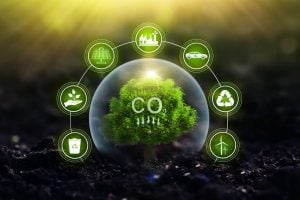Deadline: February 17, 2026
The Horizon Europe 2025 call targets the improved competitiveness, energy security, and integration aspects of value chains for advanced biofuels and renewable fuels of non-biological origin, reflecting Europe’s strategic priorities given the new geopolitical and market realities.
The focus areas include assessing how these technologies contribute to the EU’s energy security and industrial competitiveness, through detailed value chain analysis, future scenario development, macroeconomic modeling, and strategic decision-making methods.
The call emphasizes value chains closer to commercialization with potential contributions to the EU 2030 green transition and competitiveness targets, as well as emerging technologies with longer-term potential. Research and innovation actions are expected to optimize energy security and competitiveness aspects of these value chains, including defining new standards for advanced biofuels and renewable fuels of non-biological origin (RFNBOs). Challenges relating to competitiveness, energy security, and integration across all steps and stakeholders of the value chains are to be addressed.
Coordination efforts should target win-win integrated solutions for sustainable value chains involving farmers, CO2 suppliers, technology providers, researchers, fuel producers, end users, policy makers, and international organizations. The multidisciplinary scope covers advanced biofuels and RFNBO production, carbon removals, CO2 trading and valorization, sustainable farming, production of nature-based soil amendments, fertilizers, organic materials, fuel standardization, and trade-offs/synergies of carbon farming and land uses between fuels and solar panels. Value chains for renewable hydrogen as an end-product are excluded.
A sustainability assessment including techno-economic, environmental, and social factors based on life cycle analysis is expected. Projects are to deliver reference cases for full-scale and demo plants and promote cost-effective deployment pathways. They should produce investment and business cases, addressing scalability, commercialization, and deployment, including funding sources such as private equity, InvestEU, EU Catalyst Partnership, Innovation Fund, and regional development funds.
Impacts aimed for include enhanced EU energy security and industrial competitiveness, improved reliability and robustness of renewable fuel technologies, increased knowledge and understanding among policy makers and stakeholders, and promotion of sustainable development and agriculture practices that maximize carbon removals and renewable fuel innovation.
The Commission estimates that an EU contribution of around EUR 4.00 million would allow these outcomes to be addressed appropriately. Nonetheless, this does not preclude submission and selection of a proposal requesting different amounts.
The total indicative budget for the topic is EUR 8.00 million.
For more information, visit EC.


























